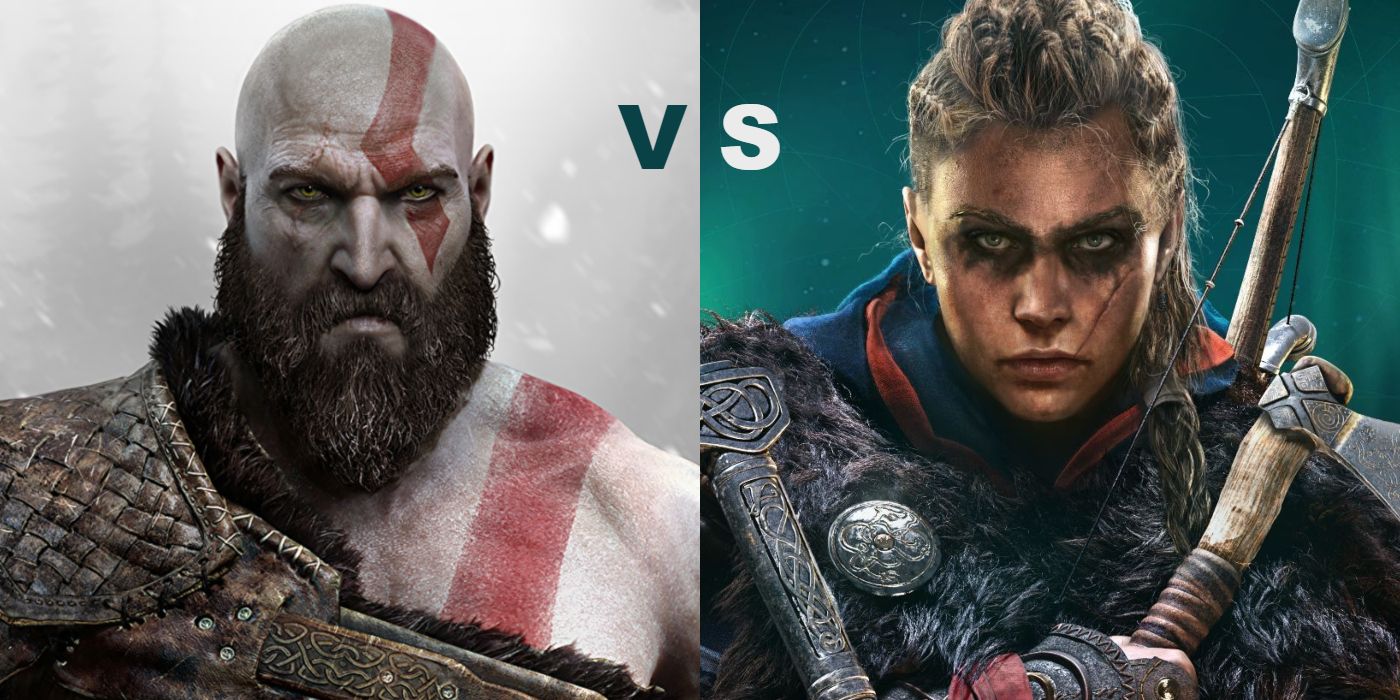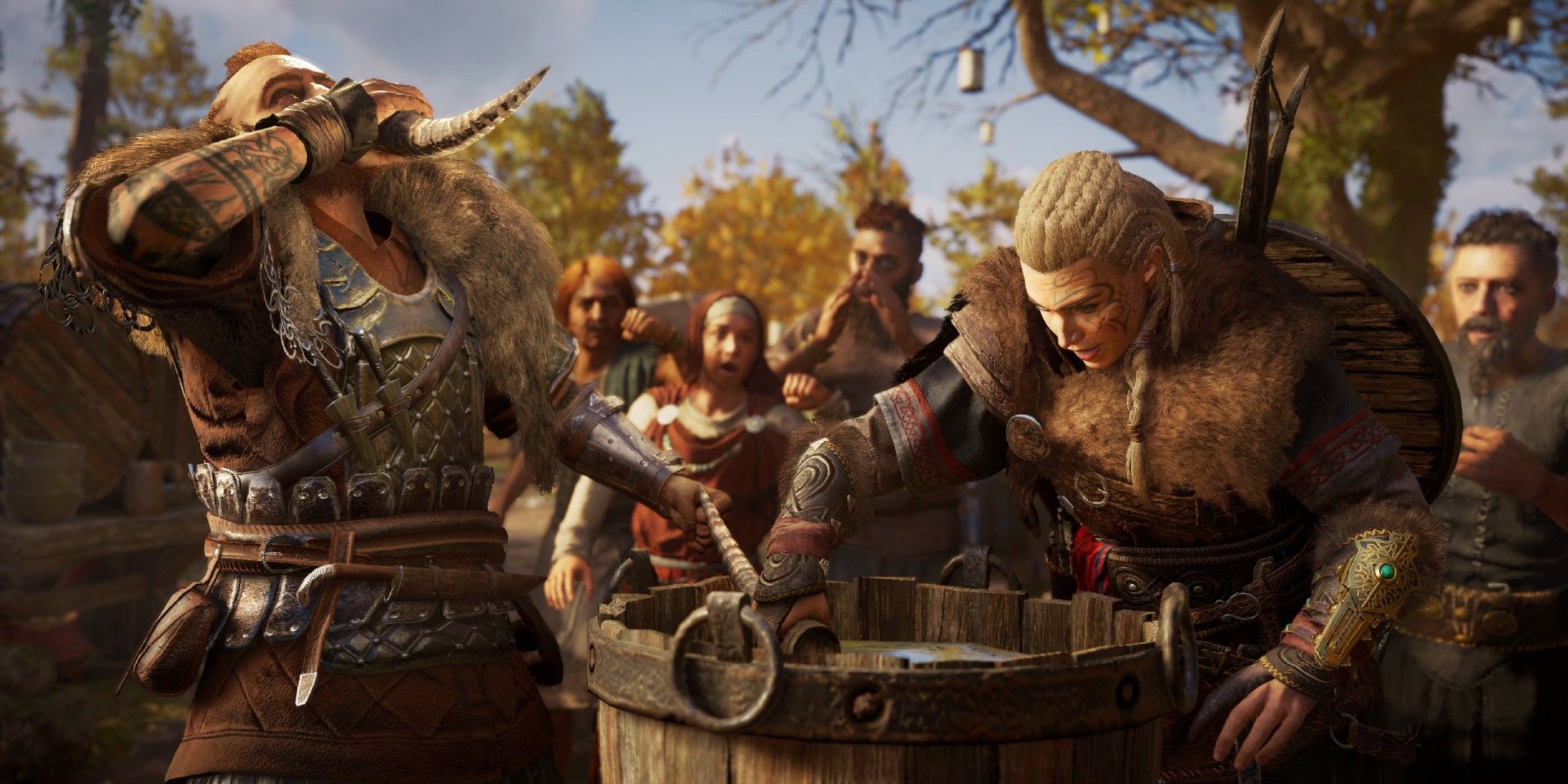Assassin’s Creed Valhalla has earned positive reviews for its portrayal of Norse culture, but how does it compare to God of War? Both Assassin's Creed Valhalla and God of War draw heavily from the mythology of Norse and Germanic paganism. However, there are are some key differences in how the two games interpreted these timeless stories.
The gods featured in God of War and Assassin’s Creed Valhalla are known as the Aesir (pronounced “ice-ear”). While ancient Norse and Germanic cultures recognized many powerful spirits and monsters - like the nature gods of the Vanir or the Jotnar, which later cultures would call “trolls” - the Aesir were worshipped above all. Most of the famous characters considered “Norse gods” in today's popular culture, like Thor and Odin, were Aesir. However, some of the earliest sources about the so-called Norse pantheon are Roman writers' recordings of Aesir worship in Germany, long before the Norse Vikings ever set sail. This ancient, varied record has left history with a complicated, contradictory portrait of exactly who the Aesir were.
In God of War on PS4, the Aesir are antagonists. Kratos finds himself the target of Norse gods’ wrath for reasons he does not understand. Likewise, many non-Aesir mythological characters Kratos encounters think of the Aesir as cruel. Thor is known for his heroic campaign of conquest against the Jotnar/Giants, but from the Giants’ perspective, his Thor's Giant-hunting is genocidal. Over the course of the story, Kratos allies with the goddess Freya. While Freya has been forcibly adopted into the Aesir, she was born a fertility god of the Vanir and harbors a deep hatred of Odin and Thor for abducting her. In this way, while God of War subverts expectations by casting the chief Norse gods as its villains, it is still closely based in broader Norse mythology.
Assassin's Creed & God of War's Norse Gods Reflect Their Protagonists
Meanwhile, the Aesir play a more positive (if less central) role in in Assassin’s Creed Valhalla. Valhalla's protagonist, Eivor, can meet the Aesir in the heavenly realm of Asgard through a chemically-induced hallucination. During this mystical encounter, the gods are portrayed in a largely jovial and comedic light. Thor, rather than a homicidal tyrant, is a comically image-obsessed oaf who boasts about how everyone loves him. This lighter tone makes sense, given that Eivor is a faithful worshipper of the Aesir who loves the stories of merry Thor and wise Odin - this is all taking place in their mind, after all. While real-life human sacrifices to the Aesir are acknowledged in Assassin’s Creed Valhalla, the gods themselves are portrayed as the delightful, frivolousness scamps they are in many Germanic folktales.
Both of these portrayals have foundation in real Norse and Germanic mythology. In folklore, the gods are complicated characters who are both wicked and righteous, petty and valorous, dangerous and benevolent. It is easy to see why, to an outsider, the violent Norse pantheon could be seen as cruel monsters (not that the titular "God of War" himself has much room to judge). Meanwhile, to a Norseman like Eivor who faithfully worships the Aesir and participates in Viking raids themselves, those same gods are viewed far more sympathetically.
In all, both games do justice to the Aesir. It’s important that these titles put their own fun spin on the material; Thor's family has been in pop culture an awful lot over the last decade. And in their own ways, Assassin’s Creed Valhalla and God of War each captured the joyful, bizarre, horrifying, and hilarious magic of Norse myth for a new generation.


